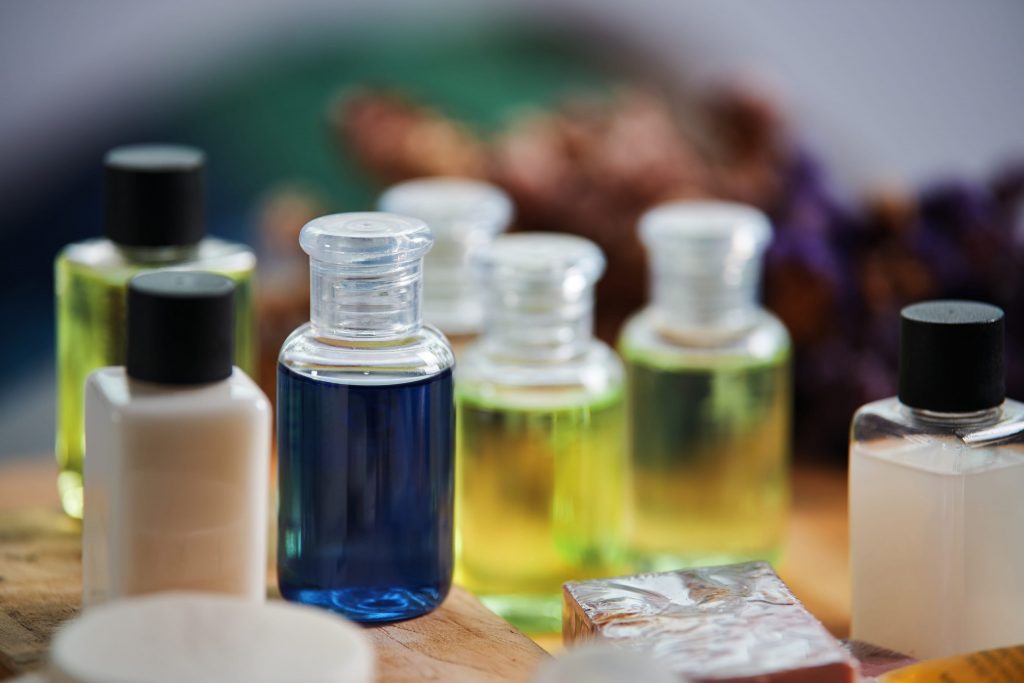Essential oils have been used for centuries across cultures for their therapeutic, aromatic, and cosmetic properties. In recent years, they’ve found a powerful place in modern skincare — not just for scent, but for their ability to soothe, heal, and transform skin health. But how do you use them properly? And which ones are truly beneficial?
Let’s explore how these concentrated plant extracts can elevate your skincare routine — when used with care and knowledge.
1. What Are Essential Oils, Really?
Essential oils are highly concentrated extracts obtained from flowers, leaves, roots, or bark of plants. They capture the plant’s aromatic compounds, but also its medicinal properties. A single drop can contain the potency of dozens — sometimes hundreds — of plants.
In skincare, they serve more than an olfactory purpose. Many essential oils are antibacterial, antifungal, anti-inflammatory, or rich in antioxidants. However, due to their strength, they must always be diluted before applying to skin.
2. Top Essential Oils for Skincare
While there are dozens of essential oils available, here are some of the most trusted and effective for various skin types:
- Lavender: A universal favorite. Soothes irritated skin, promotes relaxation, and accelerates healing. Ideal for acne, redness, or dry patches.
- Tea Tree: Famous for its antibacterial and antifungal effects. Effective against breakouts, scalp issues, and oily skin.
- Frankincense: Known for its anti-aging properties. Firms skin, reduces wrinkles, and helps fade scars and pigmentation.
- Chamomile (German or Roman): Gentle and calming, perfect for sensitive or inflamed skin. Also beneficial in baby products.
- Geranium: Balances sebum production and improves skin elasticity — great for mature or combination skin.
- Helichrysum: A powerful yet underrated oil for healing scars, bruises, and chronic skin conditions.
Each oil has a profile and potency that requires understanding. Some can cause irritation or sensitivity if misused — so education is key.
3. Safe Use and Dilution
Essential oils must never be applied directly to the skin. Instead, they should be mixed with a carrier oil like jojoba, sweet almond, grapeseed, or coconut oil. For facial skincare, the general dilution guideline is 0.5% to 2%. That means:
- 0.5% dilution (very gentle): 1 drop EO per 2 teaspoons (10 ml) carrier oil
- 1% dilution (moderate): 2 drops EO per 2 teaspoons carrier oil
- 2% dilution (stronger but still safe): 4 drops EO per 2 teaspoons carrier oil
For body products like scrubs, soaps, or massage oils, you can go slightly higher, but facial care should always stay low and safe.
4. Blending for Effectiveness and Scent
One of the joys of using essential oils is blending them. You can mix several oils to create synergistic effects or design your own signature aroma. For example:
- Soothing blend: Lavender + chamomile + sandalwood
- Balancing blend: Geranium + bergamot + clary sage
- Brightening blend: Lemon + frankincense + carrot seed
Blending requires knowledge not just of scent profiles, but of skin compatibility. Citrus oils, for instance, can be phototoxic and shouldn’t be used before sun exposure.
5. Quality Matters
Not all essential oils are created equal. Look for:
- 100% pure, undiluted essential oils
- Botanical and Latin name on the label
- Steam-distilled or cold-pressed methods
- Dark glass bottles for storage
- No added perfumes, alcohols, or synthetic substances
Low-quality oils can irritate the skin or be completely ineffective. When in doubt, source from trusted suppliers with transparency in sourcing and testing.
Conclusion: A Drop of Nature, A World of Benefits
Essential oils are powerful allies in skincare when used respectfully. They bring beauty, function, and scent in every drop — but they also demand understanding and care. Whether you’re formulating a calming face cream, a healing balm, or a gentle soap, these oils can bring nature’s intelligence straight to your routine.
In our Soap & Skincare Lab course, we teach you how to blend essential oils safely and effectively for all kinds of handcrafted products — with formulas, guides, and customization tips to help you master their use.

